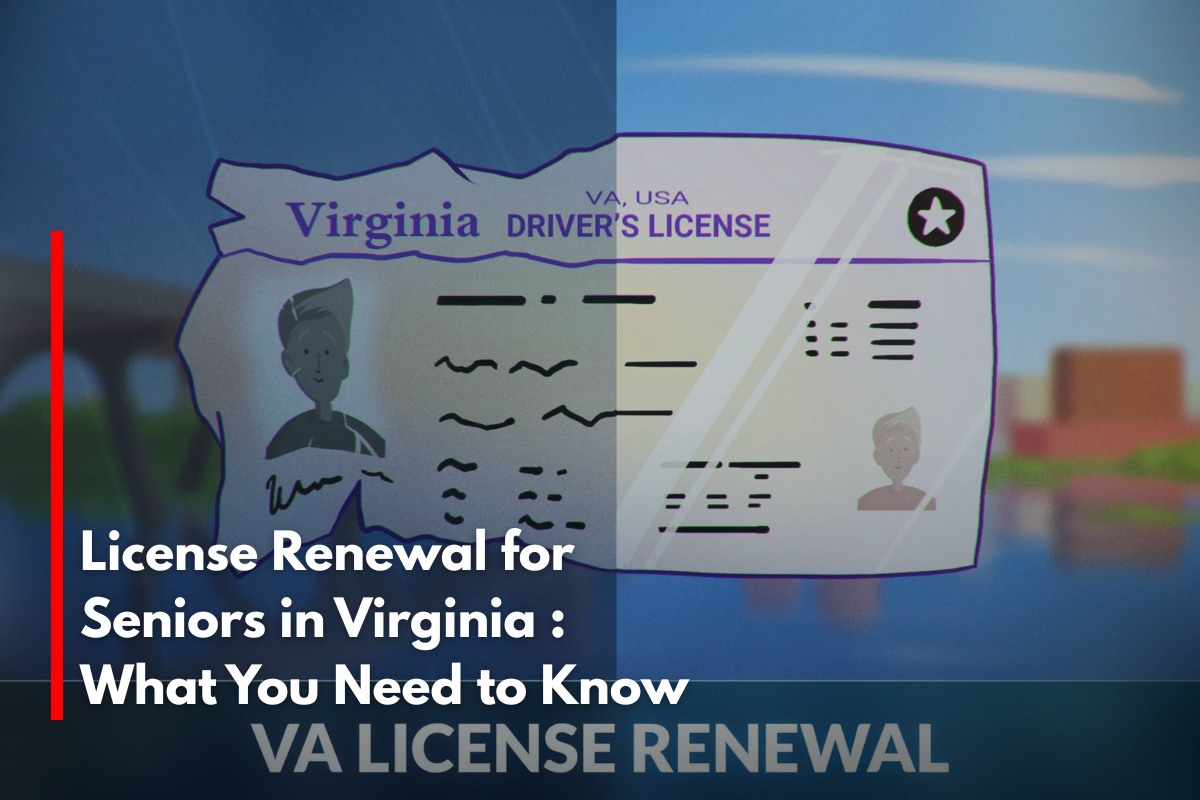Renewing a driver’s license is a routine task for all motorists, but for seniors in Virginia, there are specific rules and requirements designed to keep older drivers safe on the road. If you’re a senior driver or helping a loved one navigate the renewal process, knowing what to expect can make the process smoother and less stressful.
Renewal Frequency and Age Requirements
In Virginia, drivers under the age of 75 typically renew their licenses every eight years. However, once you reach age 75 and older, the rules change significantly:
Seniors 75 and older must renew their driver’s license every five years instead of every eight.
Starting at 75, license renewal must be done in person; online or mail renewals are no longer permitted for senior drivers.
This in-person requirement ensures that drivers complete necessary screenings to maintain safe driving standards.
Vision Screening and Medical Requirements
When renewing in-person, Virginia DMV requires seniors 75 and older to complete a vision screening. This can be done at the DMV during renewal or by submitting a vision report from an optometrist or ophthalmologist that is no more than 90 days old.
Ensuring good vision is critical for safe driving, and the screening helps identify drivers who might need further evaluation or restrictions to maintain safety on the roads.
New License Validity
For drivers under 75, a renewed license is typically valid for eight years. For those 75 and older, Virginia issues licenses valid for five years. This shorter renewal period allows more frequent monitoring of seniors’ driving capabilities.
Fees and Documentation
The renewal fee for senior drivers in Virginia is $32, the same as for other drivers. When renewing in person, seniors must bring:
Current driver’s license
Proof of identity and residency, if required
Vision test results if not completed at DMV
Payment for renewal fees
Why the Stricter Rules for Seniors?
Virginia’s stricter renewal rules for drivers 75 and older are designed to balance independence and safety. The in-person renewal and vision test help ensure that senior drivers continue to meet the physical requirements to operate a vehicle safely. These rules aim to reduce accident risks associated with vision decline and other age-related changes.
Tips for Senior Drivers Renewing Their License in Virginia
Schedule your DMV appointment early to avoid long waits, as in-person renewals can take longer.
Get a vision exam ahead of time from your optometrist if you prefer to submit a report rather than test at the DMV.
Prepare required documents and payment to make the renewal process seamless.
Consider performing a self-assessment of your driving abilities and health before renewal to address any concerns proactively.
Stay informed about any DMV updates or changes to senior licensing requirements.
Renewing a driver’s license as a senior in Virginia involves specific steps to ensure continued safe driving while maintaining mobility and independence. Understanding the five-year renewal cycle, mandatory in-person visits, and vision requirements will help you or your loved ones meet the DMV’s expectations confidently.
For comprehensive information and to prepare for your renewal, visit the Virginia Department of Motor Vehicles website or contact your local DMV office directly.
This thoughtful approach helps keep Virginia roads safe while supporting seniors’ ability to drive safely as long as they are capable.
Sources
[1] https://www.dmv.virginia.gov/licenses-ids/license/renewing
[2] https://vtrans.org/new-u-s-driving-license-rule-for-seniors-begins-august-2025/
[3] https://www.dmv.virginia.gov/licenses-ids/mature
[4] https://www.iihs.org/topics/older-drivers/license-renewal-laws-table
[5] https://www.wboc.com/archive/stricter-rules-for-senior-drivers-in-va-take-effect-jan-1/article_a220643c-a433-56a0-a9c7-c58943030ea2.html











